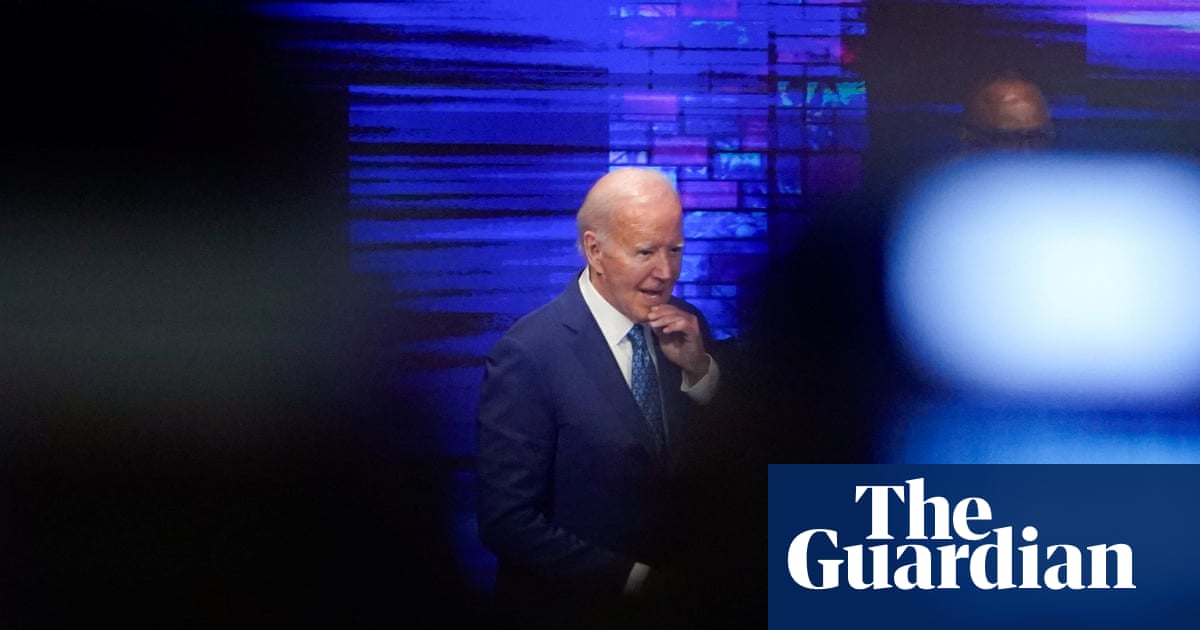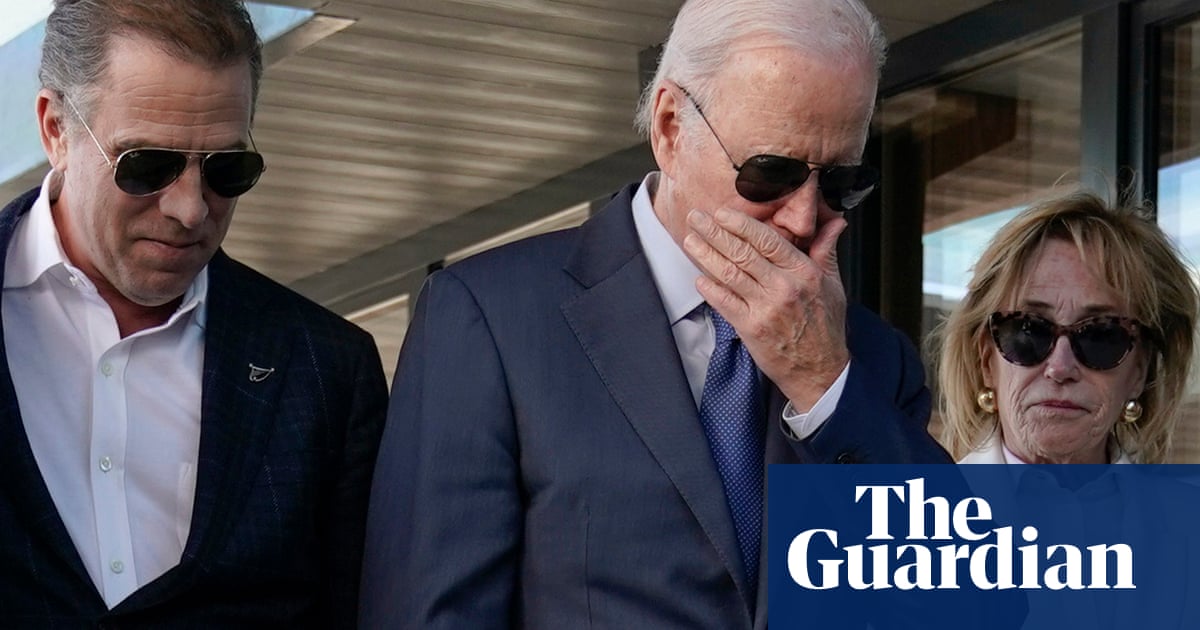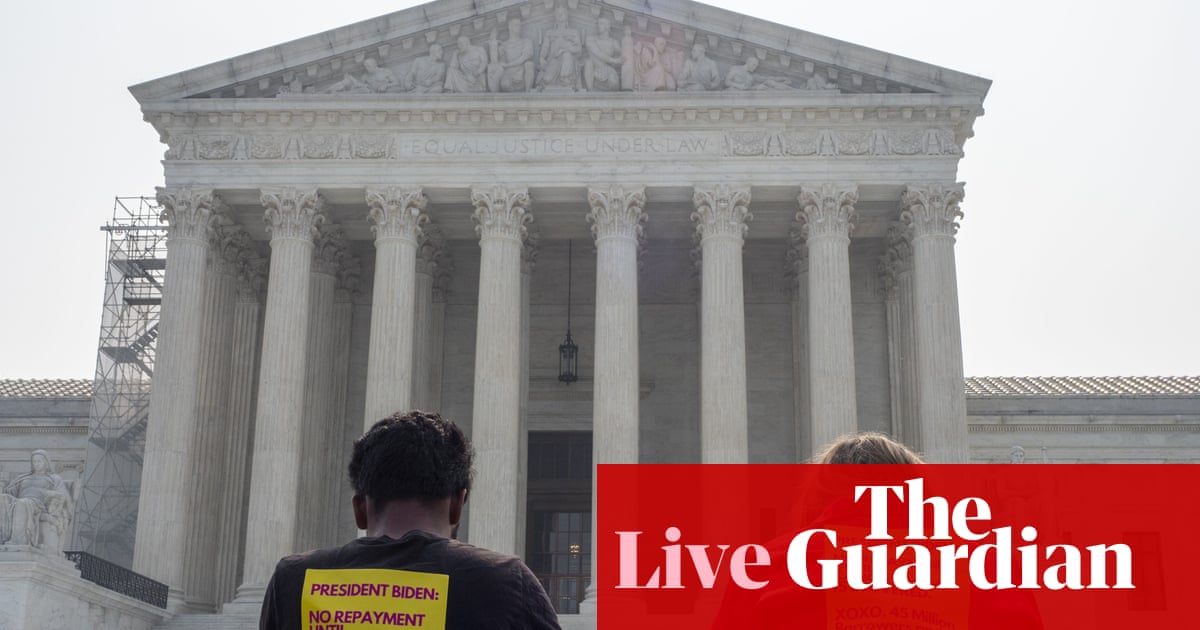
It is one of the most delicate balancing acts in American politics: how to keep together a Democratic party whose lawmakers range from the democratic socialism of the New York congresswoman Alexandra Ocasio-Cortez to the staunch conservatism of the West Virginia senator Joe Manchin.
But as Joe Biden’s administration has pushed both parts of his ambitious infrastructure plan through Congress, top Democratic officials and aides have made a point of working hard to keep the fractious sects of the party on Capitol Hill in check.
Both publicly and privately, some of the closest longtime aides to the president, as well as cabinet secretaries and other key Democratic officials, have reached out to congressional offices, specific lawmakers and various caucuses – especially during the most perilous moments of the debate over the Biden administration’s biggest domestic legislative priority so far.
Governors’ mansions across the US have also received customized fact sheets on how the infrastructure bill will affect their states.
The outreach has specifically sought to include the party’s progressive wing – which at times has eyed Biden warily from the 2020 Democratic primary onwards – and cabinet secretaries and their staffs have met with liberal activists.
But trying to keep the whole party happy has meant the appeals have varied depending on which groups or lawmakers they are talking to, and their specific concerns.
When courting progressives, White House officials have had to alleviate concerns about how the legislative sausage making process could shrink the spending in the bill. When speaking to moderates Biden aides and allies have promised that spending in the plan won’t balloon to an amount moderates consider excessive. .
“My view of it is the Biden administration has done a good job trying to reach out and I think there’s always a little bit of grinding that goes on. But early on they reached out to Bernie [Sanders] and they patched that up in a lot cleaner, quicker way than the previous nominee did,” said Mark Longabaugh, a Democratic strategist and one of the consultants on the Vermont senator’s first presidential run.
Biden himself has had to do a delicate balancing act, working to ease tensions with a progressive wing that was antagonistic in the 2020 Democratic Primary, while also factoring in moderate Democratic lawmakers. Members of Biden’s senior staff have worked to stay on good relations with liberals, even if they don’t hail from that tribe themselves.
“They see themselves as being left-adjacent,” said Felicia Wong, the president and COO of the liberal Roosevelt Institute.
The math in Congress, and the obstinate conservative Democrats in the Senate, makes some level of kumbaya difficult.
Democrats enjoy the slimmest possible majority in the Senate and only a slightly larger majority in the House of Representatives. For the Biden administration to see both the American Jobs Plan – the first part of the larger infrastructure package that focuses on things traditionally referred to as infrastructure – and the American Families Plan – which focuses on Democrats’ more expansive definition of infrastructure – make their way through Congress, the left wing of the Democratic party will have to be at the table as well.
For progressive activists and groups, this is a rare opportunity to be involved in shaping two major pieces of domestic legislation. It’s a chance to help build a legislative house rather than throw stones at it.
“Do they have to give us a seat at table? Yes, I would argue because we’ve demonstrated an electoral strength. Our issues are popular,” said Joseph Geevarghese, the executive director of the Sanders-aligned Our Revolution.
Biden’s chief of staff, Ron Klain, is a common fixture in interactions between liberals and the White House. On economic issues, Brian Deese, director of the council of economic advisers, is a familiar face. Steve Richetti, the counselor to the president, and the White House legislative affairs director, Louisa Terrell, have also sat down with progressive caucuses on the Hill.
“A lot of the outreach is people working the networks before they went in” to the administration, said Dorian Warren, the president of the leftwing organizing group Community Change. Warren recently talked with the “outreach person from the Department of Transportation to talk about infrastructure.”
Our Revolution officials have been in contact with White House officials as well, although Geevarghese and Paco Fabian, the director of campaigns for the group, declined to say who, identifying them as “high level staffers”.
Warren described his meetings with White House officials as “friendly and agitational”.
“In these meetings we’re honest and very firm with them. Like ‘you gotta fix this,’” Warren said. Warren said he had mainly talked with White House officials, like Gene Sperling, a senior adviser to the president, on the American Rescue Plan.
It’s unclear if progressives are really making an impact.
“They’re pros. They take what we send them. They hear it,” said Jason Walsh, the executive director of the BlueGreen Alliance, a coalition of labor and environmental groups. “But they don’t always show all their cards, nor would I expect them to.”
At the same time some progressives are not entirely optimistic about the White House’s attentiveness.
“Look, you can be at the table all you want, but the leaders of organizations being at White House meetings is not necessarily going to translate the base turnout if there’s a clear sense among the grassroots that this administration hasn’t delivered on what they said they’d do for progressives,” Geevarghese said.
They argue that just being at the table isn’t necessarily enough.
“We have communicated to the White House privately and publicly that we don’t think the package currently being negotiated meets the moment,” Walsh said.
In a recent meeting with Richetti, members of the Congressional Progressive Caucus laid out their argument for the White House to lower the eligibility age for Medicare. The BlueGreen Alliance sent Biden officials a letter urging his team to go bigger on infrastructure. We Demand More, a coalition focused on women, especially women of color, has launched a week of action to push the Biden administration on prioritizing “women and caregivers” by passing laws through reconciliation.
But even with ongoing pressure, progressives are bracing for a less than ideal infrastructure package in the end, as Biden continues his balancing act.
“The climate justice/environmental groups, I think there’s a possibility they could be disappointed depending on what stays in or what comes out,” Warren said.










